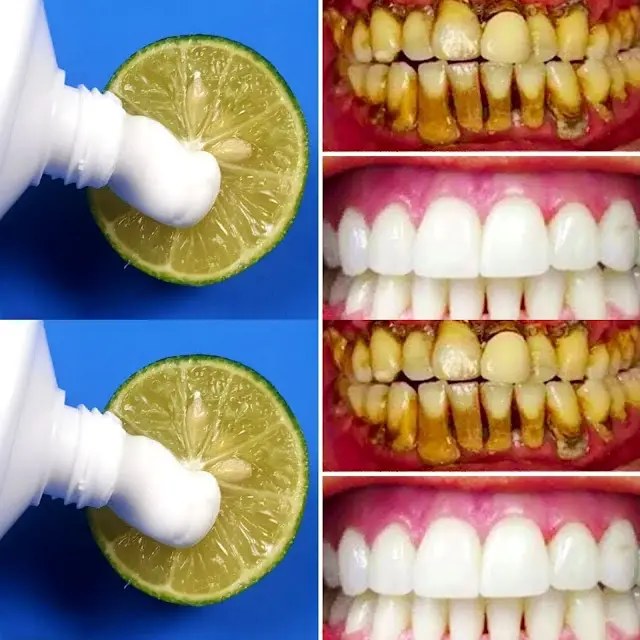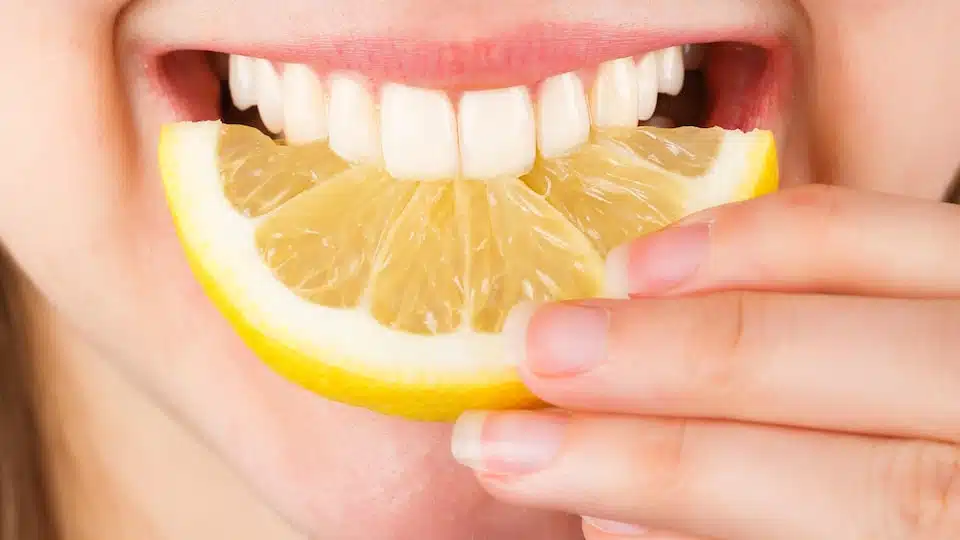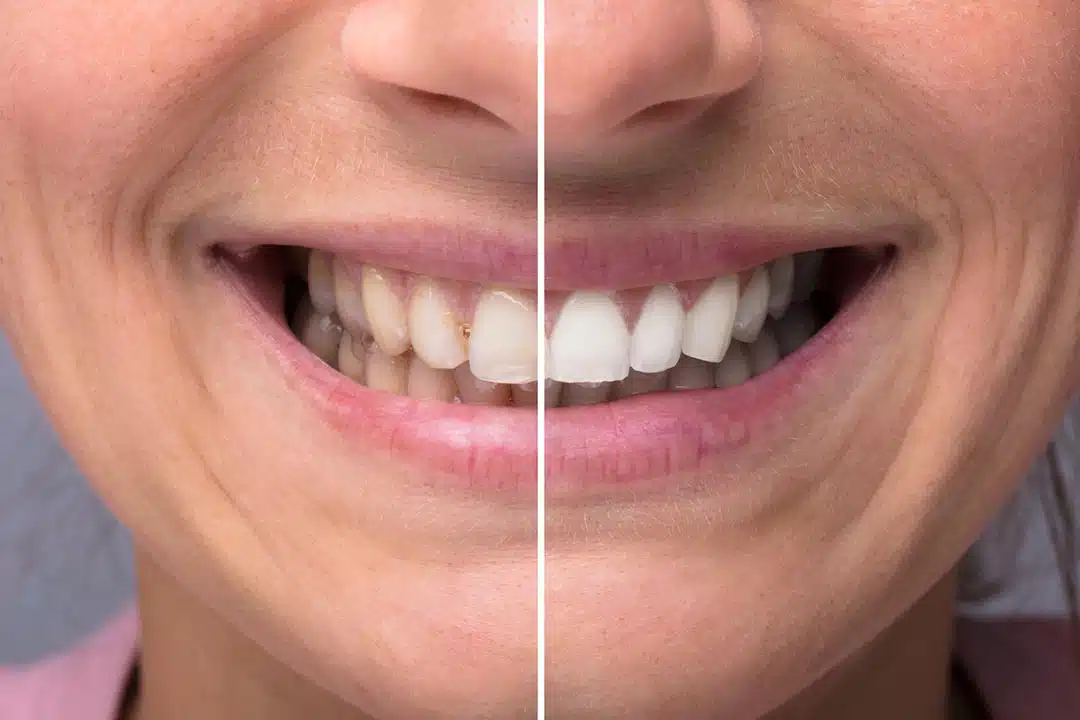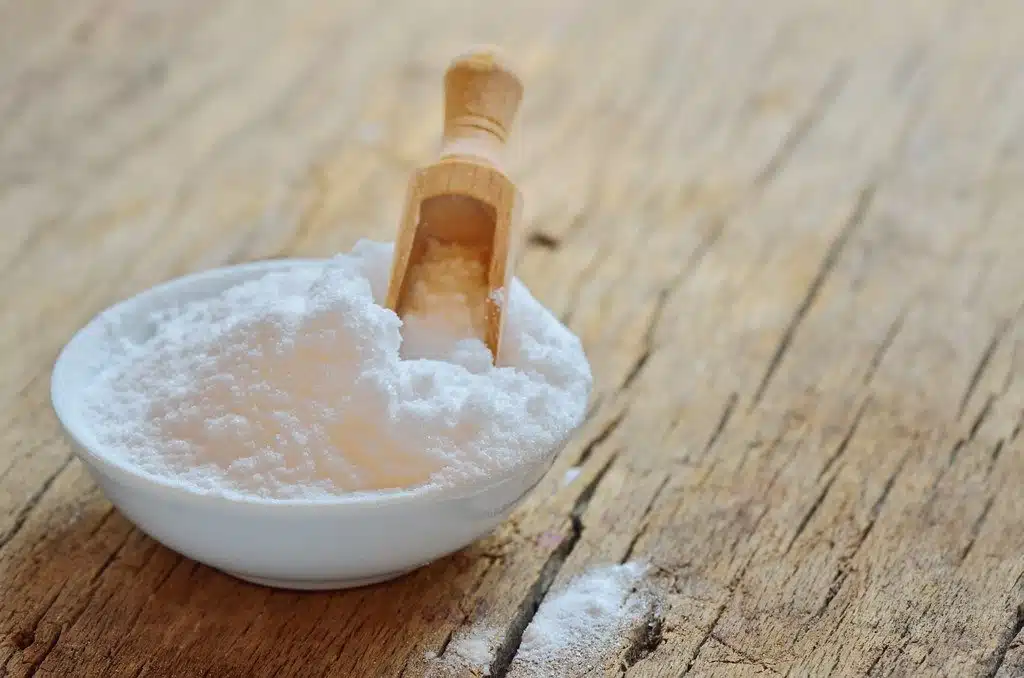
A bright smile is often associated with confidence and health, but with expensive whitening products and chemical treatments, natural alternatives like lemon have gained popularity. While lemon is commonly suggested as a quick fix for whitening teeth, the key questions are: Is it effective, and is it safe for your enamel? Read on to learn how to use it properly and the precautions to take!
Lemon: a natural ally against stains?

Lemon is packed with citric acid, a natural ingredient that’s great for cleaning and brightening. It works as an exfoliant, getting rid of stains from coffee, tea, or tobacco.
- It helps remove fresh stains thanks to its natural acidity.
- You’ll see a quick whitening effect, even after the first use.
- It’s a completely natural solution, with no chemicals.
But be cautious: The acidity in lemon can weaken tooth enamel, making your teeth more sensitive and prone to erosion. So, it’s important to use it on your teeth no more than once a week.
How to safely use lemon to whiten your teeth?

2-Minute Method: What You Need:
- 1 fresh lemon
- 1 cotton swab or a soft-bristled toothbrush
- Water
Steps to Follow:
- Prepare the lemon: Squeeze the juice of half a lemon into a bowl.
- Apply gently: Dip the cotton swab or toothbrush into the juice and lightly apply it to your teeth, without rubbing.
- Leave it on: Let it sit for 1 to 2 minutes (no longer!).
- Rinse well: Rinse your mouth thoroughly with water to neutralize the acidity.
- Wait: Wait 30 minutes before brushing your teeth to avoid damaging the enamel.
Recommended Frequency: Use this method no more than once a week to prevent harming the enamel.
Essential precautions to follow
Lemon can brighten your smile, but improper use can damage your teeth. Keep these rules in mind:
- Avoid rubbing lemon directly on your teeth to prevent enamel wear.
- Limit exposure to 2 minutes as citric acid can damage tooth surfaces.
- Don’t overuse; excessive lemon use can increase tooth sensitivity and risk cavities.
Are there gentler alternatives?

Gentler alternatives to whitening teeth include:
- Baking soda: Mixed with water, it offers gentle exfoliation without harsh acidity.
- Activated charcoal: Absorbs stains without harming enamel.
- Coconut oil (oil pulling): A natural technique to reduce stains and cleanse the mouth.
Conclusion: Is lemon a good idea?
Lemon may whiten teeth temporarily but can damage enamel if used too often. For safe, long-lasting whitening, opt for gentler methods and consult your dentist. A bright smile shouldn’t come at the cost of enamel health!

